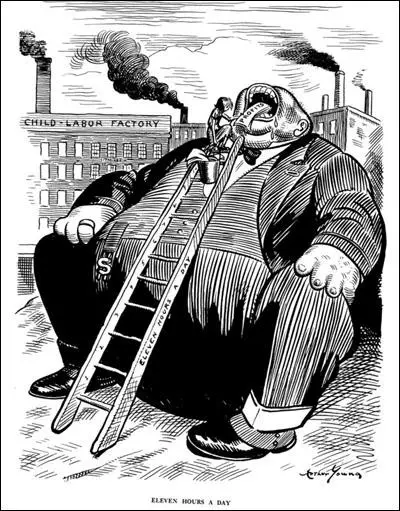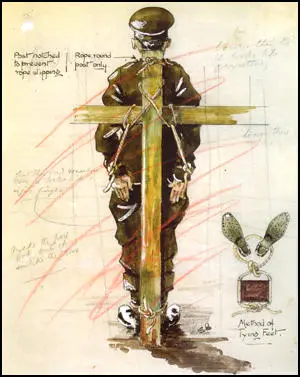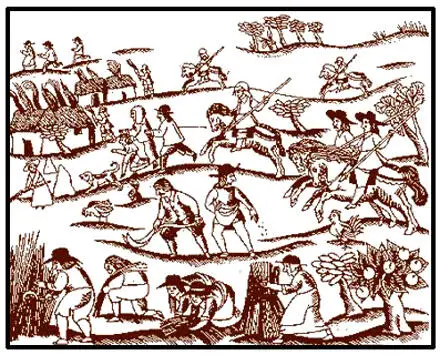April's Visual Primary Source for the History Classroom
Activities for the History Classroom

Question: The National Child Labor Committee in the United States was formed in 1904 in an attempt to persuade Congress to bring an end to child labour. One of its members, Jane Addams, reported in 1907 that there were over two million children under the age of sixteen in paid employment in the United States. She went on to argue that this helped to explain why there were "580,000 children between the ages of ten and fourteen years, who cannot read or write". How does Art Young show his disapproval of child labour?

Question: Flogging was abolished in the British Army in 1881. For serious offences Field Punishment Number One was introduced. This involved the offender being attached to a fixed object for up to two hours a day and for a period up to three months. During the First World War, these men were sometimes put in a place within range of enemy shell-fire. Why did the British Army feel the need to introduce this form of punishment?

Above the woodcut is a quotation from Gerrard Winstanley: "England is not a free people,
till the poor that have no land, have a free allowance to dig and labour the commons."
Question: On Sunday 1st April, 1649, Gerrard Winstanley, William Everard, and a small group of about 30 or 40 men and women started digging and sowing vegetables on the wasteland of St George's Hill in the parish of Walton. They were mainly labouring men and their families, and they confidently hoped that five thousand others would join them. The men sowed the ground with parsnips, carrots, and beans. They also stated that they "intended to plough up the ground and sow it with seed corn". Research shows that new people joined the community over the next few months. Most of these were local inhabitants. These men became known as Diggers.
According to one historian, John F. Harrison: "They were repeatedly attacked and beaten; their crops were uprooted, their tools destroyed, and their rough houses." Oliver Cromwell also condemned the actions of the Diggers: "What is the purport of the levelling principle but to make the tenant as liberal a fortune as the landlord. I was by birth a gentleman. You must cut these people in pieces or they will cut you in pieces." Why did Cromwell order this digger community to be destroyed?

